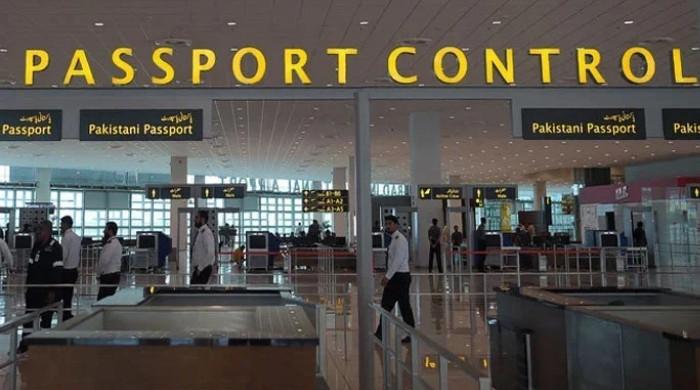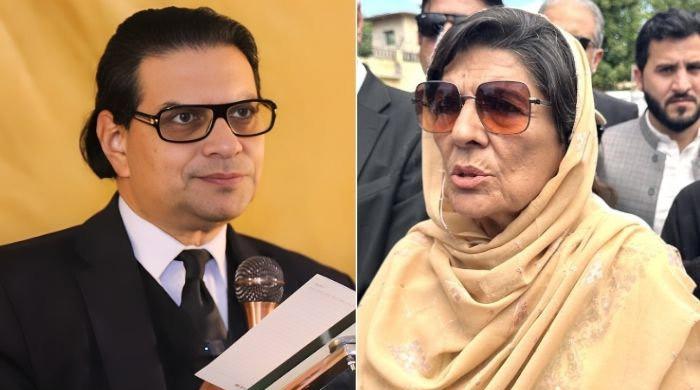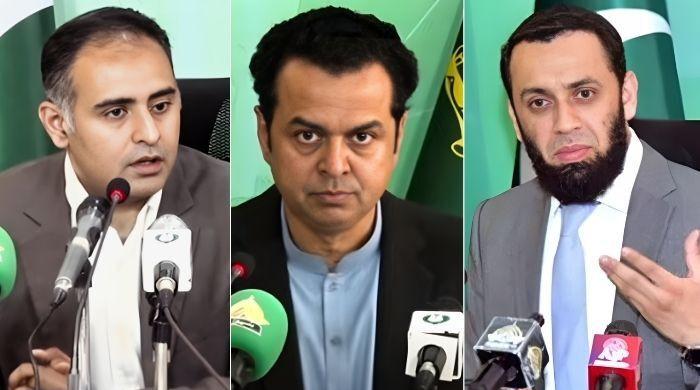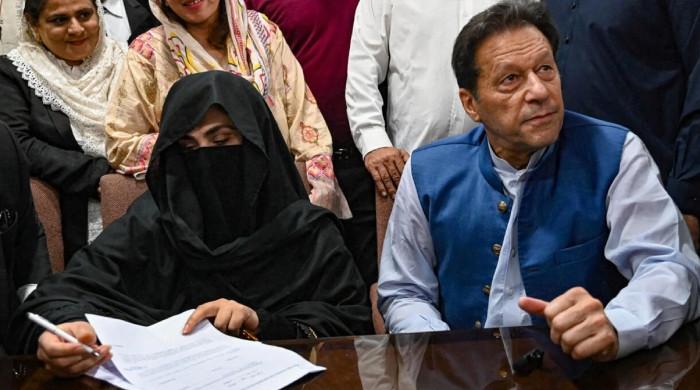Imran Khan's poll demand 'fuels political unrest'
Khan appears to be trying to mend ties with the powerful establishment
April 18, 2023
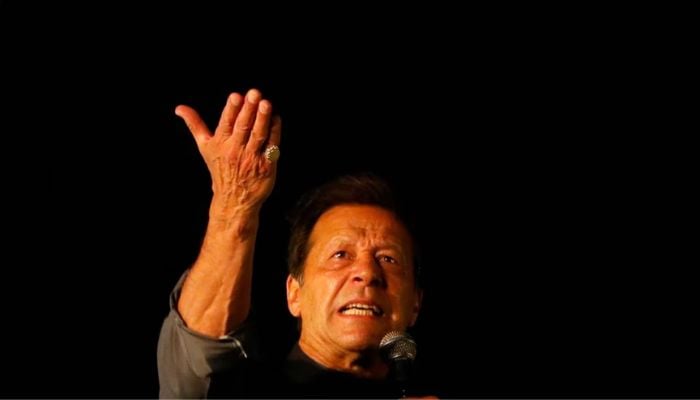
A constitutional crisis has arisen due to former prime minister Imran Khan's attempt to hold snap elections. The government is defying a Supreme Court order to conduct two provincial elections, causing concerns about the future of democracy, Bloomberg reported.
Chief Justice Umar Ata Bandial is at the centre of the controversy after he scheduled the Punjab and Khyber Pakhtunkhwa (KP) election dates, following Khan and his allies' dissolution of the assemblies and push for an early national vote.
In response, the incumbent government passed a bill to limit the chief justice's powers in taking suo motu notice, which allows the judge to act in the public's interest. The bill is currently suspended after an eight-member top court panel intervened a week before it was due to become law. This has set the stage for a confrontation between CJP Bandial and the government, and a formal hearing is scheduled for May 2 to determine the bill's constitutionality.
Adding another twist to the situation, the top judge has directed the country's central bank to allocate funds to the Election Commission of Pakistan (ECP) to conduct the polls, as the government declined to provide the necessary finances. Government officials have publicly expressed their disapproval of the court's ruling and have announced that nationwide elections will take place in October. It is likely that Khan or his supporters may take legal action against the government soon, according to Bloomberg.
“The government may be charged with contempt of court if it disobeys the orders,” said Naeem Ahmed, an international relations professor at the University of Karachi. “The country may be seeing an escalated constitutional crisis.”
What led Pakistan to reach this point?
The nation has been facing numerous issues since Imran Khan was removed from his position as prime minister a year ago by a coalition of 13 political parties led by Prime Minister Shehbaz Sharif. The coalition blamed Khan's mishandling of economic and foreign policies for his removal from office.
The incumbent premier has been reluctant to hold early elections and has instead prioritised the revival of an International Monetary Fund bailout package to prevent a default. However, his efforts have not been received well, with a recent opinion poll indicating that he and his party leaders are losing popularity as they push for challenging reforms to secure the funds.
In contrast, Khan remains popular and draws large crowds to his rallies. The former cricketer seeks early elections to demonstrate his support base while facing court cases on charges of terrorism and corruption, which he claims are politically motivated. Khan has even survived an alleged assassination attempt, which has left him with a leg injury.
What’s the election dispute?
In an attempt to trigger elections, the Pakistan Tehreek-e-Insaf (PTI) and its allies utilised their combined majorities in Punjab and KP to dissolve the legislatures in January. According to the Constitution, elections must be held within 90 days of dissolution. However, as the government appeared to delay the process, Chief Justice Bandial intervened and formed a bench of judges to hear the case.
The five-member panel of justices, with three in favour and two against, directed President Arif Alvi, a member of Khan's party, to announce the polling date for both provinces, which was set for April 9. However, the government stated that there was insufficient funding for elections due to the economic crisis and that it was essential to concentrate on obtaining the IMF loan. Consequently, the electoral watchdog postponed the polls to October 8, citing a lack of funds and a rise in terrorism.
How does the Supreme Court stand on this matter?
Following Khan's appeal of the poll postponement, the Supreme Court was divided, and a nine-member bench was formed to consider the matter. Two justices recused themselves, while four others dismissed the case. Meanwhile, CJP Bandial and two other judges ruled that the polls should be conducted in Punjab on May 14. However, the government demanded that a larger panel of justices hear the appeal, which the chief justice refused to do.
The Shehbaz administration was instructed to provide Rs21 billion to the election body by April 10 to conduct the polls. However, the government rejected the verdict, stating that it was a minority view, and referred the matter to parliament. A separate appeal regarding elections in KP is being heard at a provincial court.
What’s next for government?
The fate of the upcoming elections depends on the ruling coalition in parliament. Recently, government lawmakers passed a non-binding motion prohibiting funds to the election commission and conducting local elections in May.
Meanwhile, the PDM-led government introduced a money bill in parliament to allocate funds for the elections, as per the Supreme Court's order. However, the bill was rejected by the standing committees of parliament.
Government officials, including Interior Minister Rana Sanaullah, have suggested the possibility of imposing emergency laws to delay the elections, citing concerns over rising terrorism or an economic crisis. This has happened before, as in 2007, when the national vote was postponed after the assassination of then-prime minister Benazir Bhutto.
What options are there for Imran Khan?
The election commission is under pressure from Khan and his party to comply with the court order, and they may take legal action against the government. Khan is expected to continue holding protests and rallies, which could lead to violence, particularly after the end of the fasting period later this month.
With national elections expected to take place in October, Khan seems to be attempting to repair his relationship with the establishment. He is also seeking to improve his ties with the United States, with whom he had a falling out after accusing them of collaborating to remove him from power — a charge they deny




